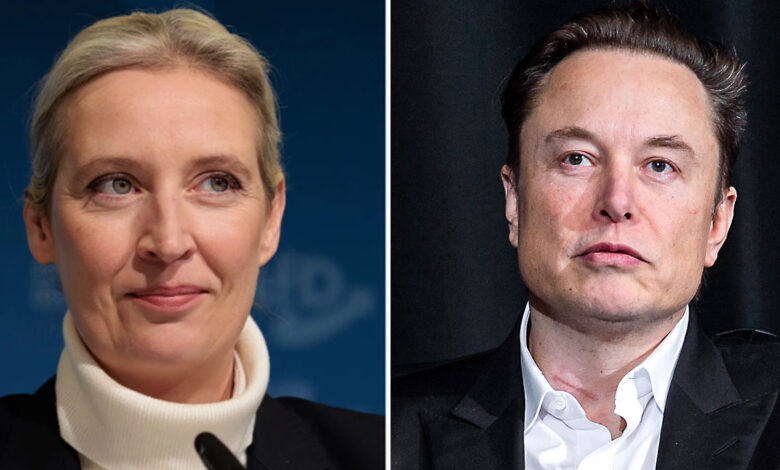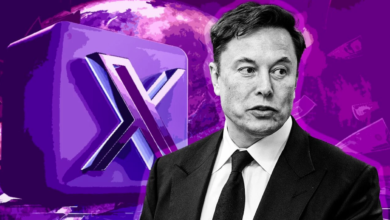Elon Musk’s Controversial Endorsement of Germany’s AfD Party Sparks Political Turmoil Ahead of National Elections
Elon Musk sparks controversy in Europe by endorsing Germany's far-right AfD party in a live chat with leader Alice Weidel, raising concerns among European leaders ahead of the national elections on February 23.

Elon Musk has stirred significant controversy in European political circles by endorsing Germany’s far-right Alternative for Germany (AfD) party. In a move that has been both praised and criticized, Musk hosted a live chat with AfD leader Alice Weidel on his platform X, marking a clear endorsement of the party ahead of Germany’s upcoming national elections on February 23. This interaction has left European leaders grappling with how to respond, given Musk’s influence and financial power.
European Leaders’ Response:
European politicians have expressed frustration and concern over Musk’s involvement in German politics. German Chancellor Olaf Scholz advised against “feeding the troll,” indicating a strategy of non-engagement with Musk’s provocations, while opposition leader Friedrich Merz labeled Musk’s interference as “intrusive and pretentious.” Despite the outcry, there’s a consensus among European leaders that their ability to counteract Musk’s influence is limited, primarily due to his status as a foreign billionaire with significant investment in the region, including Tesla’s gigafactory near Berlin.
France’s President Emmanuel Macron and other leaders have publicly questioned the appropriateness of Musk’s involvement in European elections, highlighting the broader issue of foreign influence in domestic politics. However, the legal and practical avenues to curb such actions remain murky, especially with Musk’s actions falling within the realm of free speech and political commentary.
Musk’s Stance:
Musk has defended his support for the AfD, arguing that the party’s portrayal as right-wing extremist is “clearly false,” citing Alice Weidel’s personal life to challenge the narrative. His engagement with the AfD comes at a time when the party has been classified by German intelligence as a “suspected extremist organization.” Musk’s actions have been interpreted as part of a broader pattern of endorsing populist and far-right figures across Europe, including his previous support for Nigel Farage in the UK.
Public and Political Reaction:
The response to Musk’s endorsement has been polarized. Some see it as a validation of the AfD’s political agenda, while others view it as an unwelcome intrusion into German democracy. There are calls for boycotts against Tesla and X, with German NGOs and companies reconsidering their association with Musk’s platforms. This situation underscores the tension between free speech, political influence, and the integrity of democratic processes.
Conclusion:
As Musk continues to wield his influence in European politics, the scenario raises significant questions about the role of tech billionaires in shaping political landscapes. With European leaders finding themselves with limited options to directly counter Musk’s influence, this incident could set a precedent for how global personalities engage with national politics, potentially reshaping the rules of political engagement in the digital age.




